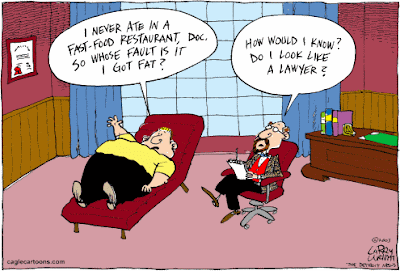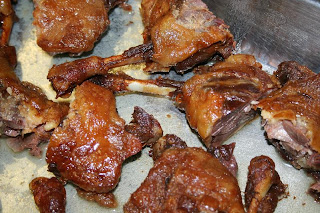You know, one of the upsides to aging is that some of the lessons you learned (usually the hard way) when you were younger come back, not as a clunk on the head, but more like a whisper in your ear. Very often, and if we are paying attention, we find that those lessons can teach us volumes about ourselves and how we fit into the big picture.
The field of food and beverage is so incredibly vast. To approach it as a newbie is a lot like running down to the ocean's edge and jumping into the biggest, most intimidating wave with no regard for it's enormous force. It's exciting, yes- but, there is so much to learn and understand, and respect. Mind you, I think it's a great way to get into the business- with gusto and passion. But, with time and a little saltwater in your lungs, you come to understand, this is bigger than you. And, it always will be.
There are a lot of opinions today. The world has found more creative and effective ways to get them out into the world through sites like Facebook, Twitter, online posts, blogs, and just plain pontification in public, if anyone will listen. Hell, this blog is living proof of that, especially if you're reading it! But, there is a very real danger of people just ingesting and numbing to the internet Kool-Aid. It's why I'm a big fan of factcheck.org.
I was giving a lecture last month and wanted to check my dates on the Russian occupation of Paris (it was 1815). I was explaining the etymology of the term "bistro" as it relates to a modern day restaurant. I had known that the Cossacks, after invading, stormed the boarding houses of the time and shouted "bystro, bystro", meaning "quickly", to demand food and service after pillaging the City of Light. But, I was amused to see the Wikipedia reference use the phrase, "according to urban legend..."
Excuse me, but when did we go from a commonly accepted explanation of "the origins of the bistro" to urban legend? When just about anyone can belly up to the editing table, it seems, we're dealing only in "virtual facts". The encyclopedia, as we know it, has gone the way of the pay phone and typewriter. Obsolete.
A lack of humility can be said for experts of all kinds. Foodies are just passionate people who love their comestibles; but then there are the insufferable food JERKS. People who just don't know when to shut up about what they know. They want to share every single detail about what they just learned whether we are interested or not. When they're unleashed on the public (say as a waiter), we all die a little inside. We feel bad for them because they don't get it. When they get their own TV show, they come off as likable, because they don't challenge us to know what they know- they give just enough information in 22 minutes, buttressed with commercials for celebrity knives and jars of Ragu, as to not offend us and make us think of them as snobs. Each program is just a slightly different "channel" for the various levels of viewership. This, my friends, is the nucleus of The Food Network.
The more you learn about food and wine, the more you find there is yet to learn. All the lessons of life can be learned in the kitchen. Discipline, respect, failure, success, sharing, love, death (if you've ever killed a roast beyond recognition), and yes, humility. So, when the waters gets kinda rough out there, strap on an apron, open a bottle of wine, put on some tunes, take a deep breath and sail the open seas of generations of cooks before us!
Well put, Chef.
Excuse me, but when did we go from a commonly accepted explanation of "the origins of the bistro" to urban legend? When just about anyone can belly up to the editing table, it seems, we're dealing only in "virtual facts". The encyclopedia, as we know it, has gone the way of the pay phone and typewriter. Obsolete.
The term humility is from the Latin, "humilitas", which depending on how you look at it can mean "humble", something in short supply these days. Or, my preferred definition from "humus", or "earth", meaning "low" or "from the earth", a great allusion to keeping your feet firmly planted or staying "down to earth".
The more you learn about food and wine, the more you find there is yet to learn. All the lessons of life can be learned in the kitchen. Discipline, respect, failure, success, sharing, love, death (if you've ever killed a roast beyond recognition), and yes, humility. So, when the waters gets kinda rough out there, strap on an apron, open a bottle of wine, put on some tunes, take a deep breath and sail the open seas of generations of cooks before us!
Charlie Trotter had this to say in dedicating his third cookbook, Seafood: "to some of the true giants of the food world, Jean Banchet, James Beard, Paul Bocuse, Julia Child, Fredy Girardet, Fernand Point, Louis Szathmary, and Roger Verge, from whose shoulders many of us enjoy a spectacular view."
Well put, Chef.

















